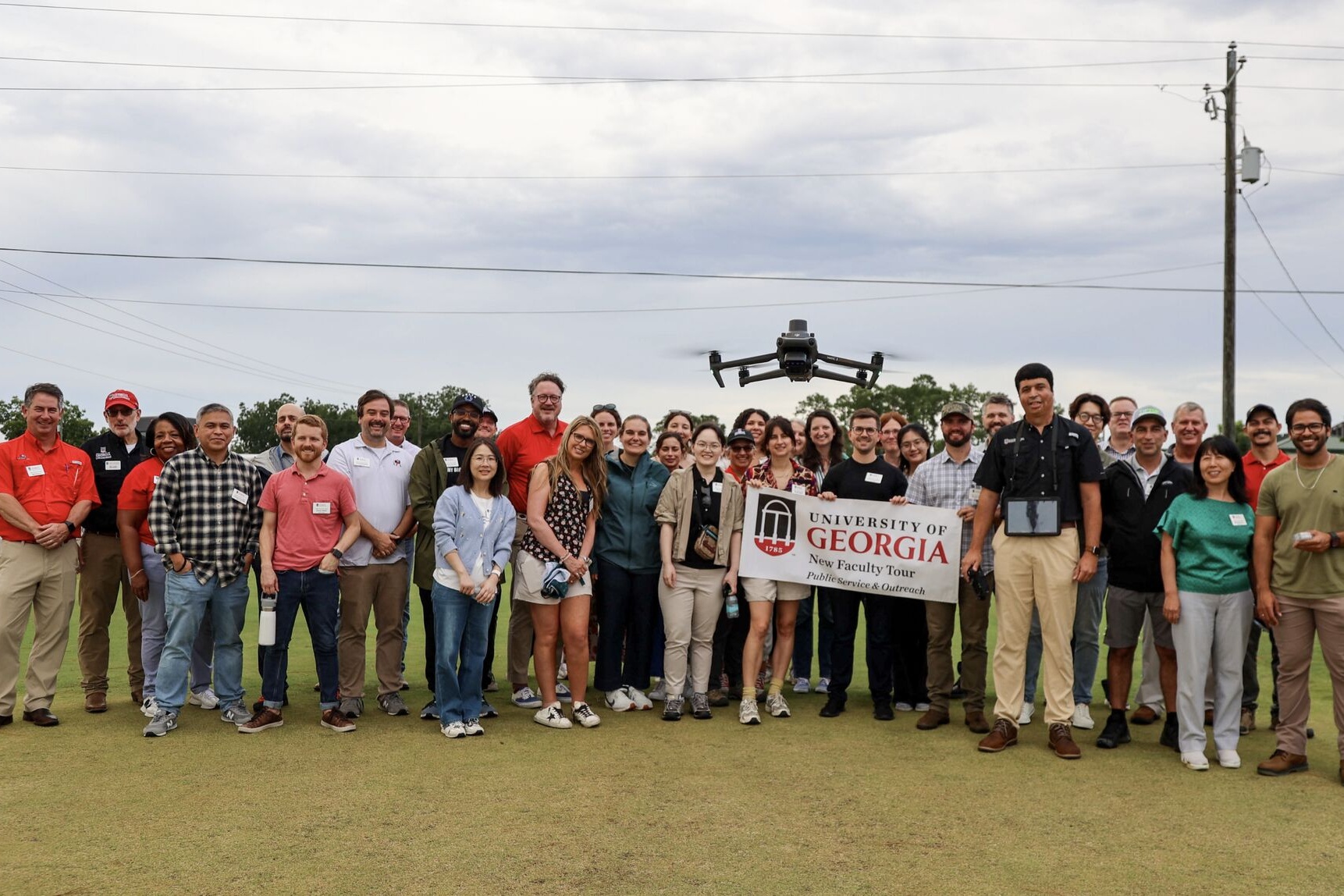By Sharon Omahen
University of Georgia
Based on their work with Distance Diagnostics through Digital
Imaging, two University of Georgia faculty members were part of
an official visit to Central America with U.S. Secretary of
Commerce Carlos Gutierrez this fall.
Inviation only trip
Gutierrez selected 18 U.S. institutions to accompany him on
his
post-CAFTA (Central America Free Trade Agreement) mission trip.
CAFTA goes into effect in January. It will remove trade barriers
and open up Honduras, Guatemala, El Salvador, Nicaragua and the
Dominican Republic to U.S. goods and services.
Marco Fonseca, a UGA Cooperative Extension horticulturist, and
Jean Walter, a UGA Extension agent in Jasper County, traveled
with Gutierrez to Guatemala, El Salvador and Nicaragua in the
Oct. 16-22 mission trip.
Fonseca and Walter were selected for the trip for their work
in
the region with DDDI. This system that uses digital images,
computers and e-mails to quickly diagnose insect and disease
problems. They helped UGA share the technology with Honduras,
setting up five DDDI systems.
Funds provided travel, Honduran systems
Robert Fowler, a trustee with the Arnold Fund, was also in the
UGA contingency. The Arnold Fund, a Georgia-based charitable
trust fund, sponsored the university’s DDDI project in Honduras
and the UGA travel expenses for the CAFTA mission trip.
Two of the DDDI systems, at the Port of Cortez, will help
prevent
plant diseases and insects from leaving Honduras.
“This is one of only a handful of U.S. Customs offices set up
in
ports outside the U.S.,” said Fonseca, a native Honduran. “A U.S.
inspector checks the shipments. So, now, agricultural products
can go straight into our market.”
Fonseca says the port’s DDDI system will be a great benefit as
CAFTA changes take place. “The CAFTA region is the second-largest
export market in Latin America and the tenth largest in the world
for U.S. exports,” he said.
“More than half of the current U.S. farm exports to Central
America will become duty-free immediately, including beef,
soybeans and cotton,” he said. “Tariffs on U.S. farm exports,
including corn, beef, pork and poultry from Georgia, will be
phased out over time.”



